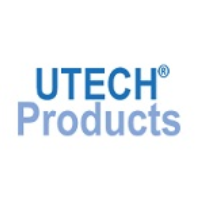TNF alpha Rat Uncoated ELISA Kit, Uncoated ELISA Kit, Each

|
|
Details:
The Rat Tumor Necrosis Factor Alpha (TNF-α) Uncoated ELISA Kit contains pre-matched antibody pairs, and reagents for performing quantitative enzyme linked immunosorbent assays (ELISA) to detect and quantify protein levels of rat TNF-α. Wash Buffer and Stop Solution are needed to complete the ELISA reaction and are sold separately. Principle of the method ELISAs are designed to measure the amount of the target bound between a matched antibody pair. A target-specific antibody is coated to the bottom of the wells of a microplate, which is an overnight process. Samples, standards, or controls are then added into these wells and bind to the immobilized (capture) antibody. A sandwich is formed by the addition of the second (detector) antibody, a substrate solution is added that reacts with the enzyme-antibody-target complex to produce measurable signal. The intensity of this signal is directly proportional to the concentration of target present in the original specimen.Tumor Necrosis Factor is a polypeptide cytokine produced by monocytes and macrophages. It functions as a multipotent modulator of immune response and further acts as a potent pyrogen. TNF-alpha circulates throughout the body responding to stimuli (infectious agents or tissue injury), activating neutrophils, altering the properties of vascular endothelial cells, regulating metabolic activities of other tissues, as well as exhibiting tumoricidal activity by inducing localized blood clotting. TNF-alpha also inhibits lipoprotein lipase activity resulting in cachexia, a physical wasting condition. Activation of B-cells by the Epstein Barr virus can be inhibited by TNF-alpha. Due to its varied actions throughout the immune system, TNF-alpha may play a role in the pathogenesis of many disease states. TNF-alpha production is mediated by the action of lymphokines and endotoxins on the macrophage. Purified monocytes produce TNF-alpha within four hours of stimulation by recombinant IL-2 and there is some in vitro evidence to suggest that TNF-alpha is expressed at high levels and with prolonged kinetics in T cells stimulated by both CD2 and CD28. Secretion of TNF-alpha is enhanced by gamma interferon. TNF then induces or enhances the specific production of Class I MHC antigen, GM-CSF, and IL-1.
Additional Information
| SKU | 1447348 |
|---|---|
| UOM | Each |
| UNSPSC | 41116158 |
| Manufacturer Part Number | 88734088 |
